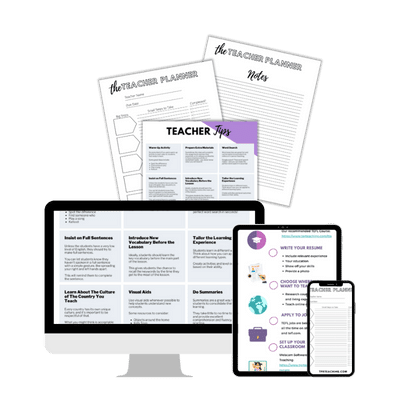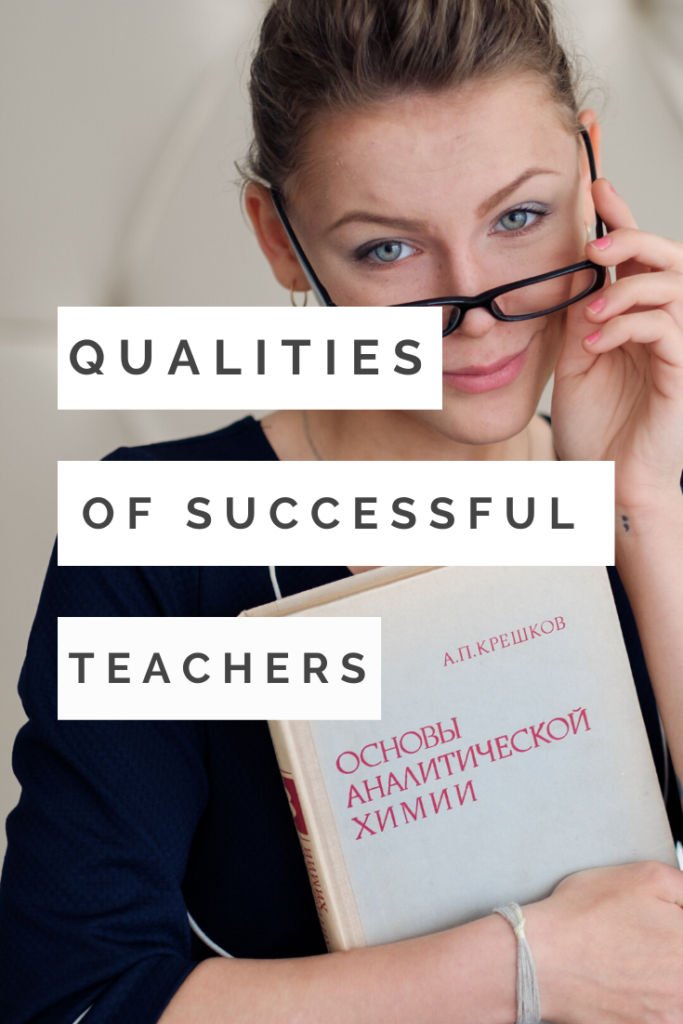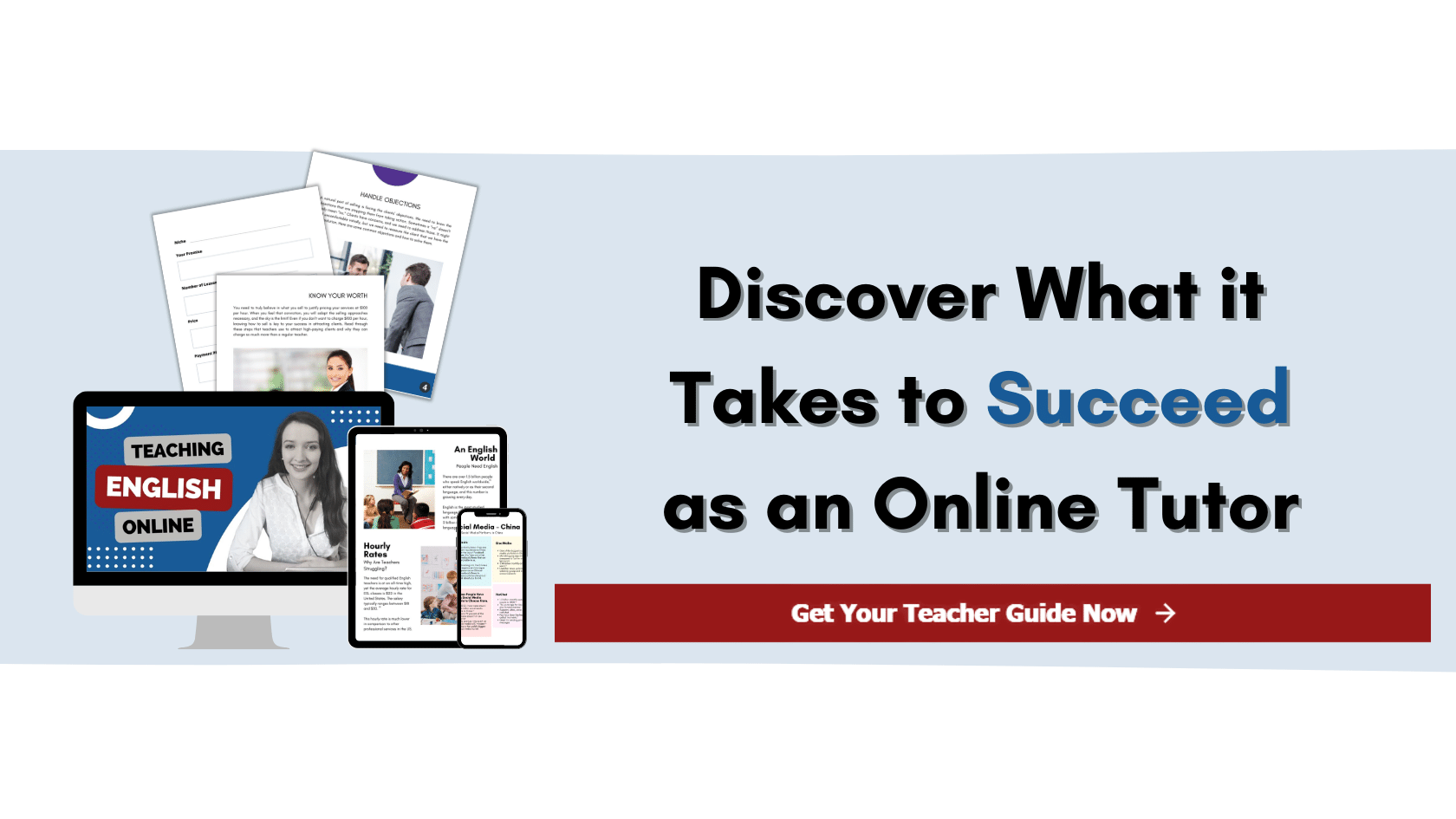Are you a dedicated teacher looking to enhance your teaching skills?
According to the ING Foundation Survey, eighty-eight percent of surveyed Americans reported that at least one teacher had a significant positive effect on their life.
Teachers give students the avenue to grow their skills and pave life’s opportunities.
If you think about it, students are like flowers. If teachers provide them with proper care, they will grow. How will they grow if they do not provide them with care, value, and knowledge? Teachers are partly responsible for their growth, and they can help them become even better.

Qualities of a Good Teacher
How to be a good teacher, make your job easier, and get on with students?
Good teachers have many soft skills and qualities that make a huge difference in a student’s life. If you are considering a degree in education, it’s important to explore the kind of qualities and characteristics you would need to excel in the role.
Below are some qualities of a good teacher.

1. Listening Skills
Listening is important for three crucial reasons:
- Listening allows new ideas to take shape.
- Students feel part of the conversation which enhances learning.
- Teachers can learn by listening to students’ needs.
Every student has their own story, and no two students are alike. They also have their own unique learning style. Students trust teachers as experts and have high expectations.
Teachers should pay attention to their students. Teachers can help them reach their true potential by understanding their needs and abilities.
Students can form their own ideas and opinions, speak about them and deepen their learning. Teachers can listen and understand the learning gaps or difficulties they may be having. They can then provide students with the resources and tools to combat their learning difficulties and accomplish their learning tasks.
Be open to listening and learning from the students. They have a lot to teach us too.

2. Preparation Skills
Prepare for lessons in advance or at least know what needs to be taught. This will give teachers a clear structure and help students follow their lead. Planning and organization allow things to run more smoothly in the classroom.
If teachers are not prepared, they are more likely to lose control of the class, and their students will quickly get bored or frustrated.
Prepare to teach different strategies and see what works and doesn’t work. Experiment with the classroom and always strive to challenge the students with some extra materials.
According to ThoughtCo, preparing for the classes help:
- Define and shape the teaching philosophy.
- Make the day go by faster as teachers know what to do next.
- Resonate with students and boost their performance.
- Teachers feel more confident and reassured.
- Earn respect from students and other teachers.

3. Problem-Solving Skills
Be patient, stay calm and use problem-solving skills to manage difficult situations in the classroom.
If teachers don’t know the answer to something, they should tell the students they will find out and get back to them. They shouldn’t try to make up an answer on the spot, as this will only confuse the students.
Encourage critical thinking and problem-solving in students by posing questions and letting them figure out the answers for themselves. This helps students become more independent.
The teacher should have the confidence to face every challenge. Continue to learn, and don’t overlook problems that must be resolved. There is always a solution to every problem. You just have to be willing to find it.

4. Patience
A good teacher is patient. They do not get upset easily and can control their emotions. This is important because it allows them to keep a level head and be more efficient when dealing with different types of students.
There will be times students test the teacher’s patience. Let students share their views and ideas regardless of how the teacher feels. These ideas may point to something important.
Teachers set their expectations and encourage the students to follow through. If students lack maturity and discipline, then this is another story and does not require the patience of a saint.
Learning strategies vary from student to student. If the teacher falls behind in the workload, they can give it as homework or ask them to take a look at it the next day.
Rushing them will only discourage the learning process, as students will feel like saying, “I can’t.”
Impatience with sincere students is an indication of the teacher’s own shortcomings.
The New Times

5. Encouragement
By cultivating an environment of encouragement, teachers can foster students’ development.
Encouragement builds the students’ confidence and self-esteem. When students feel appreciated, respected, and supported, they are more likely to take risks, persist in the face of difficulties and setbacks, and become resilient learners.
Encouragement can be given through words or actions. It can be as simple as making eye contact, smiling, or writing a positive comment on a student’s work.
The teacher’s words have the power to make or break the student, so why not be the encouragement the students need to continue their studies?
How Can Teachers Offer Encouragement?
- Provide verbal praise
- Have a ‘student of the week’ award
- Offer rewards such as stickers and medals.
- Offer a word of encouragement and support even when they are struggling
- Be precise, and explain what they did well to encourage them to do it again in the future

For English Language Teachers or Those Looking to Get Started…
Teacher tips, new teacher checklist, teacher planner, and notes. Subscribe for ESL News, jobs, and more!
Making Mistakes is Okay
Never insult or ridicule students in front of other students. The students might develop a phobia of making mistakes, thus discouraging them from learning or participating. Praise the students for high-quality work and assess their understanding.
The learning process is full of mistakes. The teacher can easily correct them after praising the student for their effort. Interrupting the student can discourage them from speaking again.
Never make students feel like they can’t make mistakes. Praise them for making the effort, and discuss what they did well and what they can improve upon.
6. Communication Skills
Excellent communication is essential for a good teacher. It involves being able to explain things clearly and concisely. It entails active listening, which is necessary to understand the needs of the students.
When communicating with students, always be respectful. Use simple language that they can understand and avoid using too much jargon. Be clear when giving instructions, and check that the students have understood using concept-checking questions.
Non-Verbal Communication
It is important to be aware of non-verbal communication. This includes the utilization of body language and facial expressions. How does a confident person present themselves? Show positive facial gestures, such as a welcoming smile.
Teachers with open and welcoming body language will help put the students at ease.

7. Your Personal Touch
A good teacher is someone who can bring out the best in their students. They know how to motivate and inspire them to reach their full potential. A committed teacher is patient, caring, and has a passion for their subject.
Teachers need to be able to connect with their students on a personal level. This means being able to understand their individual needs and learning styles. It also means being able to build relationships of trust.
A dedicated teacher will use a variety of teaching methods to cater to the different needs of their students. They will also be flexible and adapt their lesson plans to suit the changing needs of the students.
Think outside the box and add a personal touch. Play games with the student by using educational technology, try scaffolding, role-playing, having discussions or adding some peer-learning activities. There is more than one way to use a whiteboard. Even adding humor will entice the most challenging students.
Bringing some positive energy to each lesson will help the students engage and participate. By introducing activities, students experience a little excitement and enjoy the class more.

8. Community-Building
A good teacher is someone who builds a strong sense of community in their classroom. This includes creating an inclusive and supportive environment for all students.
It is important that students feel like they are part of the class and that they belong. Organizing events and activities, such as ice-breakers, unite students and help them get to know and learn from each other.
Involve everyone with different tasks, build their confidence, and don’t neglect any student. Get the students thinking and encourage their collaboration. For example, teachers can help introverted students by asking them to be their leaders for the week and giving them some small classroom duties.

9. Empathy
A good teacher is someone who is able to empathize with their students. This means being able to understand and share the feelings of another person.
Being able to empathize with the students helps build trust and rapport. Often students do not feel understood or even valued. We, as humans, look for people who treat us with warmth and respect.
The teacher should avoid getting too angry or upset if a student misbehaves. Instead, they should try to understand why they are acting out and how they can help them. Perhaps they are going through a tough time at home or are struggling with the material.
Empathy also allows teachers to be more patient with their students. When they understand how they feel, they can be more understanding and flexible with them.
The teacher is like a supporter, educator, mentor, and leader all at once. A teacher will never have the same relationship with students if they are cold and distant.
How You Can Develop Empathy
- Put yourself in the student’s shoes
- Consider their feelings
- Not judge the situation but try to understand what is happening
- Use phrases like “I know that…” or “I understand that…” and see if there is a way to help

10. Self-Reflection Skills
A good teacher is someone who is able to reflect on their own teaching practices. This means being able to take an honest look at what is working and what is not working. It also means being willing to make changes in their teaching methods.
Self-reflection allows teachers to improve their skills. It helps teachers become more aware of their strengths and weaknesses. When teachers identify their own areas for improvement, they can work on them and become better, thus enabling future classes to run more smoothly.
Teachers who keep a journal can record the learning experiences of the day. This helps see things from a new perspective and identify common mistakes or ideas.
Reflecting on how a class went can also help teachers to prepare for the next class. Teachers can make changes to the lesson plan or materials based on what they have learned from the previous class.
Teachers Can Ask Themselves
- Are things going well? Why/Why not?
- How can I encourage the students to participate more/work harder?
- What do students need help with? How can I help them with that?
- How can I make a difference?
Teachers may try recording the class. When they play it back, they will understand what they could have done differently and make observations they hadn’t made before.
Teachers may wish to observe other teachers and find out what works for them. By exposing themselves to other styles and strategies, their own teaching methods can be improved.
Conclusion
A good teacher is someone who can create a supportive and inclusive environment, challenge their students, and be reflective of their own teaching practices. These are just some of the qualities that make an excellent teacher.
Teachers are lifelong learners and devote a lot of time to caring for and nurturing thousands of students they meet during their careers.
If you enjoyed this article, drop a comment below and show your support! If you want to become an online English teacher, sign up for our mailing list. We will keep you up to date with ESL news.
Useful Links
- How to Make Money as an ESL Teacher
- How to Prepare and Plan the ESL Classroom
- Teach English as a Foreign Language Certification

Online Teacher Toolkit
Be IN The Know
Get the latest jobs, news, and opportunities delivered directly to your inbox by joining my exclusive community. Grab my teacher planner, teacher checklist and tips now. Sign up here.
GEt Certified
Start your teaching journey and get certified now. Watch my YouTube video about how I got started, or read about my experience here: The TEFL Academy review.
START Your First Teaching JOb
New to the world of online teaching or just want to fill some hours in? Curious if this is a career you want to pursue? Check out Cambly to get started. Read the Cambly review.
Highest-Paying Online Teaching Jobs
In my post, I cover a list of some of the highest-paying online teaching jobs. Alternatively, use the curriculum online and find your own students. It’s easier than you think!
ACCEPT PAYMENTS ONLINE and Save money
Use Wise to accept payments from overseas. Wise has the lowest exchange rates that I am currently using right now. Get Wise.
Caitriona Maria is an education writer and founder of TPR Teaching, crafting inspiring pieces that promote the importance of developing new skills. For 7 years, she has been committed to providing students with the best learning opportunities possible, both domestically and abroad. Dedicated to unlocking students' potential, Caitriona has taught English in several countries and continues to explore new cultures through her travels.


